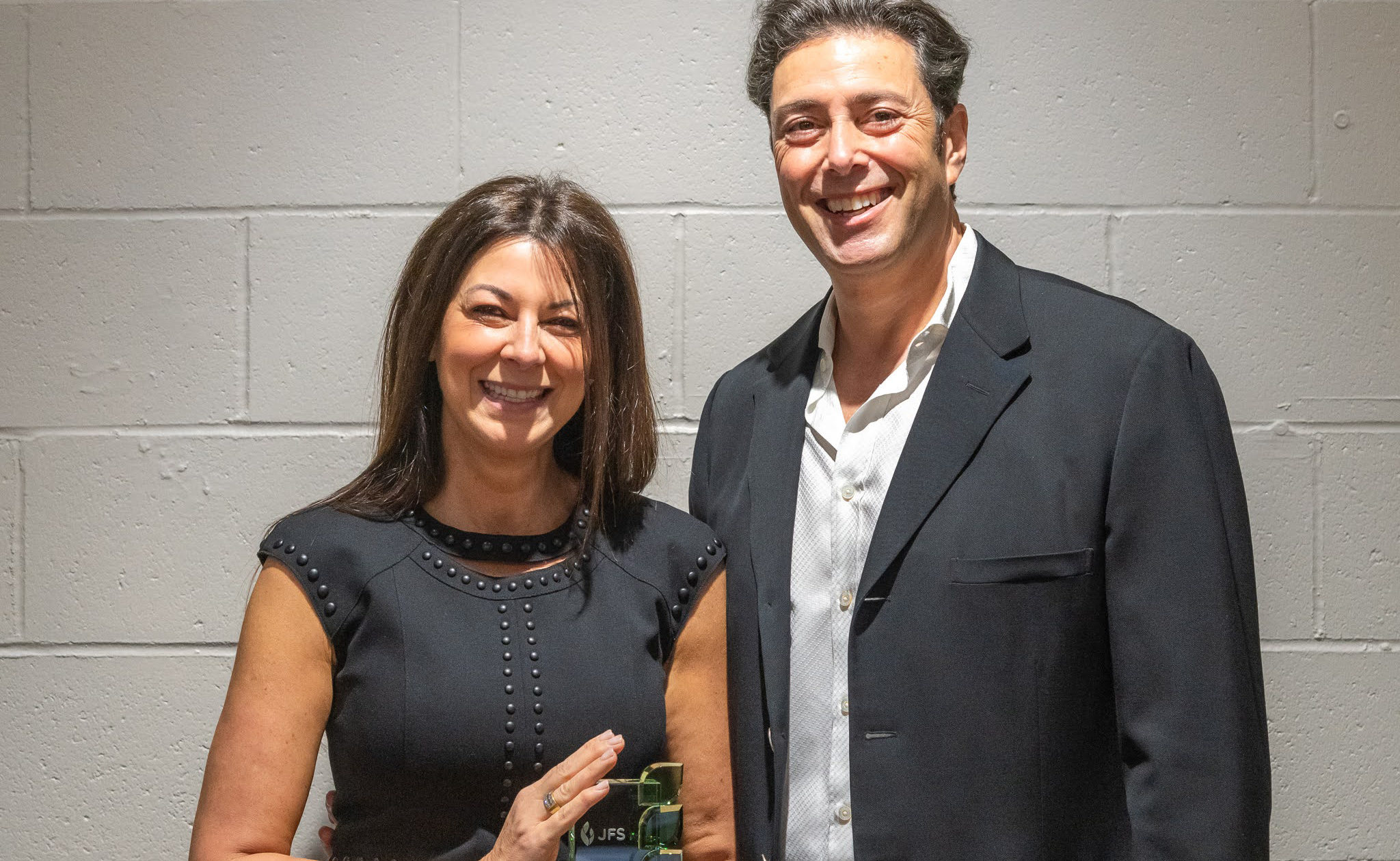As JFS' Board Chair, Jody Dales shares what makes JFS special, the importance of valuing our people, and what we're working on for the future.
Could you please share your vision as JFS new Board Chair?
Many people have sat in the chair that I am about to occupy. Some of them I know personally, and some by reputation. They are people motivated by their compassion to be activists. I share that experience. I am discomforted knowing that there are people without shelter, without food, who have limited employment opportunities, and few sources of support. My goal as the new board chair is the same as my predecessors, to help create a more equitable society by capitalizing on the tremendous successes achieved by past chairs, CEOs and staff on whose shoulders I stand. More specifically, I will focus my energies on building even better relationships with all of our stakeholders, starting with our paid professionals – the heart and soul of JFS.
What motivated you to get involved with JFS?
I’m extremely lucky and could have just as easily been extremely unlucky. My good fortune allows me to help those who are far less fortunate. That’s what motivates me to be involved with JFS; my affinity with everyone that we help.
What do you think is special about JFS?
The “J” in JFS for me is the most special part of our agency. We are a Jewish organization. We only exist because Jewish law dictates that we “do justice” by caring for the needs of one another, and in this way, create an equitable society. Some form of a JFS existed throughout Jewish history, even in the ghettos during the Holocaust. It’s part of our culture. It’s who we are. It’s even how the JFS board chose the values by which we operate: To be trustworthy and collaborative, to offer dignity and respect, to be inclusive and welcome diversity, to be compassionate and offer care, and to be transparent and accountable. These values are not exclusively Jewish, but they are inherently Jewish.
What do you think the community should know about JFS?
I hope that every member of our community takes a moment to fully appreciate what JFS does. We provide basic essential human needs to the members of our community (and beyond). We put roofs over people’s heads. We put healthy food on their tables. We give them strategies to help them manage anxiety, fear, and anger. We provide caregivers that allow seniors to stay in their own homes. We provide an exit from harmful relationships. And we freely offer genuine loving kindness. Arguably, our stakeholders know this. But there are different ways that our brains process information. I hope that what our community knows about JFS is understood intellectually, and felt profoundly. What JFS does should make us smile, and make us cry.
What do you think is JFS' strength?
Without question, JFS’s greatest strength is its staff. Our staff is JFS. I am in awe of the dedication demonstrated by all levels of personnel, especially during the escalation of the demands placed upon them during the past two years. While dealing with the turmoil Covid-19 created in their own homes, our staff had to manage an influx of phone calls from desperate clients, old and new alike, with endless patience and constant cheer, emanating a sense of calm that many didn’t feel themselves. Staff burnout has been JFS’s greatest Covid challenge. I stand in reverence to the vast majority of our team who have remained steadfast in their devotion to this agency and to the people whom they serve. Whether on the front line, or supporting the effort from behind the scenes, our staff members are second to none.
What do you see as JFS' opportunity to grow?
The opposite of growing is stagnating. Our CEO, Tanja Demajo, is both a visionary leader and a pragmatic director. Two areas of growth that the board and staff are working on together include Seniors Home Support and Food Security. We are currently evaluating our entire Home Support program because the need for this service is constantly increasing. Identifying and implementing changes now will ensure that the program is poised to meet the future needs of our aging community members. The Kitchen is still very new, and opportunities for growth are endless – from implementing food recovery programs, to enhancing the pantry with produce grown by our staff and volunteers, to bringing people together by expanding culinary experiences, and better utilizing the space more times of the day and night. These are the areas we will be working on.

